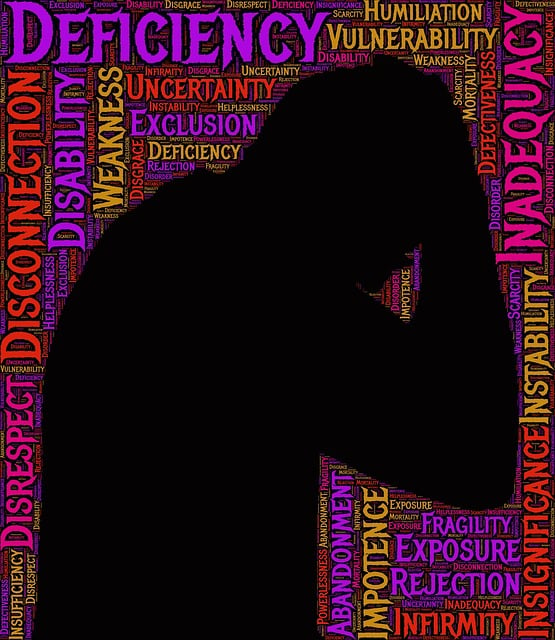Aurora EMDR Therapy emphasizes thorough risk assessment as a cornerstone of safe and effective treatment. This involves meticulously evaluating clients' psychological histories, identifying unique risks, and tailoring interventions to minimize potential harm. The approach combines techniques from Emotional Well-being Promotion and Social Skills Training to empower clients. Regular risk assessments adapt strategies, ensuring a dynamic therapeutic process that promotes long-term mental wellness. By integrating Empathy Building Strategies, Mental Wellness Journaling Exercises, and robust Mental Health Policy Advocacy, Aurora EMDR Therapy maintains a proactive, evidence-based framework for harm minimization, fostering positive thinking and inner strength development in clients.
“In the realm of mental health treatment, risk assessment and harm minimization are paramount, especially within Aurora EMDR Therapy. This article guides professionals through a meticulous process, offering insights into understanding risk in this unique therapeutic approach. We explore identifying potential harms specific to EMDR and devise strategies for mitigation. Additionally, creating a comprehensive harm minimization plan is detailed, emphasizing its dynamic nature that adapts with treatment progression. Regular review ensures safe practice, fostering a holistic and secure therapeutic environment.”
- Understanding Risk Assessment in Aurora EMDR Therapy
- Identifying Potential Harms and Mitigation Strategies
- Developing a Comprehensive Harm Minimization Plan
- Regular Review and Adaptation for Safe Practice
Understanding Risk Assessment in Aurora EMDR Therapy

In Aurora EMDR Therapy, risk assessment is a meticulous process that forms the cornerstone of safe and effective treatment. It involves a thorough evaluation of a client’s psychological landscape, identifying potential risks and vulnerabilities unique to their experience. This methodical approach ensures that any emotional triggers or past traumas are carefully considered, enabling therapists to tailor interventions accordingly. By assessing these risks, therapists can implement tailored strategies aimed at harm minimization, fostering a more secure therapeutic environment.
The process is not merely reactive but proactive, incorporating techniques from Emotional Well-being Promotion and Social Skills Training to empower clients. This holistic perspective not only addresses immediate concerns but also contributes to long-term mental wellness. Moreover, Aurora EMDR Therapy’s emphasis on risk assessment translates into valuable insights for the Mental Wellness Podcast Series Production, offering content that resonates with listeners seeking effective coping mechanisms and personal growth strategies.
Identifying Potential Harms and Mitigation Strategies

Identifying potential harms is a crucial step in risk assessment for Aurora EMDR Therapy. This process involves thoroughly evaluating all aspects of the therapeutic journey, from initial client intake to ongoing sessions and post-treatment support. By understanding the possible risks and challenges clients might face, therapists can proactively develop strategies to minimize harm. These may include implementing Empathy Building Strategies to foster a safe and supportive environment, ensuring clear communication, and providing comprehensive information about the therapy process.
Mitigation strategies are tailored to address specific concerns, such as managing potential relivings of traumatic memories or addressing symptoms of Depression Prevention and Stress Management. For instance, therapists might incorporate techniques for emotional regulation, coping skill development, and progressive relaxation exercises to help clients navigate distressing experiences more effectively. Regular risk assessments allow therapists to adapt these strategies, ensuring a dynamic and responsive approach throughout the therapeutic process.
Developing a Comprehensive Harm Minimization Plan

In developing a comprehensive harm minimization plan, particularly for practices like Aurora EMDR Therapy, it’s crucial to integrate various strategies that address potential risks and promote client well-being. This involves not only identifying possible harms but also implementing proactive measures to mitigate them. One effective approach is incorporating Empathy Building Strategies into the therapy process. By fostering deeper understanding and connection between therapist and client, these strategies can enhance communication, build trust, and create a safer therapeutic environment. Additionally, Mental Wellness Journaling Exercise Guidance can empower clients to track their progress, identify triggers, and develop coping mechanisms, thereby enabling them to actively participate in their mental health journey.
Complementing these practices, a thorough Mental Health Policy Analysis and Advocacy is essential. Reviewing and updating policies related to confidentiality, informed consent, and crisis management ensures that the harm minimization plan aligns with current best practices and legal standards. Moreover, advocating for policies that prioritize client autonomy and access to mental health resources strengthens the overall framework, contributing to a more robust and effective strategy for minimizing harms within the therapeutic setting.
Regular Review and Adaptation for Safe Practice

In the realm of Aurora EMDR Therapy, effective risk assessment and harm minimization planning are paramount for ensuring safe practice. Regular review and adaptation are essential components of this process, as the therapeutic landscape is ever-evolving. Therapists must continually assess and reassess potential risks associated with various interventions, adapting their strategies accordingly to mitigate any adverse effects. This dynamic approach fosters an environment conducive to positive thinking and inner strength development, allowing clients to build resilience in the face of challenging emotional experiences.
By integrating regular review into their practice, therapists can stay vigilant against emerging risks and incorporate innovative techniques that enhance overall therapeutic outcomes. Such proactive measures not only safeguard clients but also underscore the commitment to providing up-to-date, evidence-based care. This continuous cycle of evaluation and adaptation is a game-changer in fostering resilience building within the therapeutic setting, ultimately contributing to more successful and lasting outcomes for clients engaging in Aurora EMDR Therapy.
Aurora EMDR therapy, while powerful, requires rigorous risk assessment and harm minimization planning. By understanding potential risks, identifying mitigation strategies, developing comprehensive plans, and regularly reviewing practices, therapists can ensure safe and effective treatment. This approach not only protects clients but also strengthens the integrity of Aurora EMDR as a therapeutic modality.














